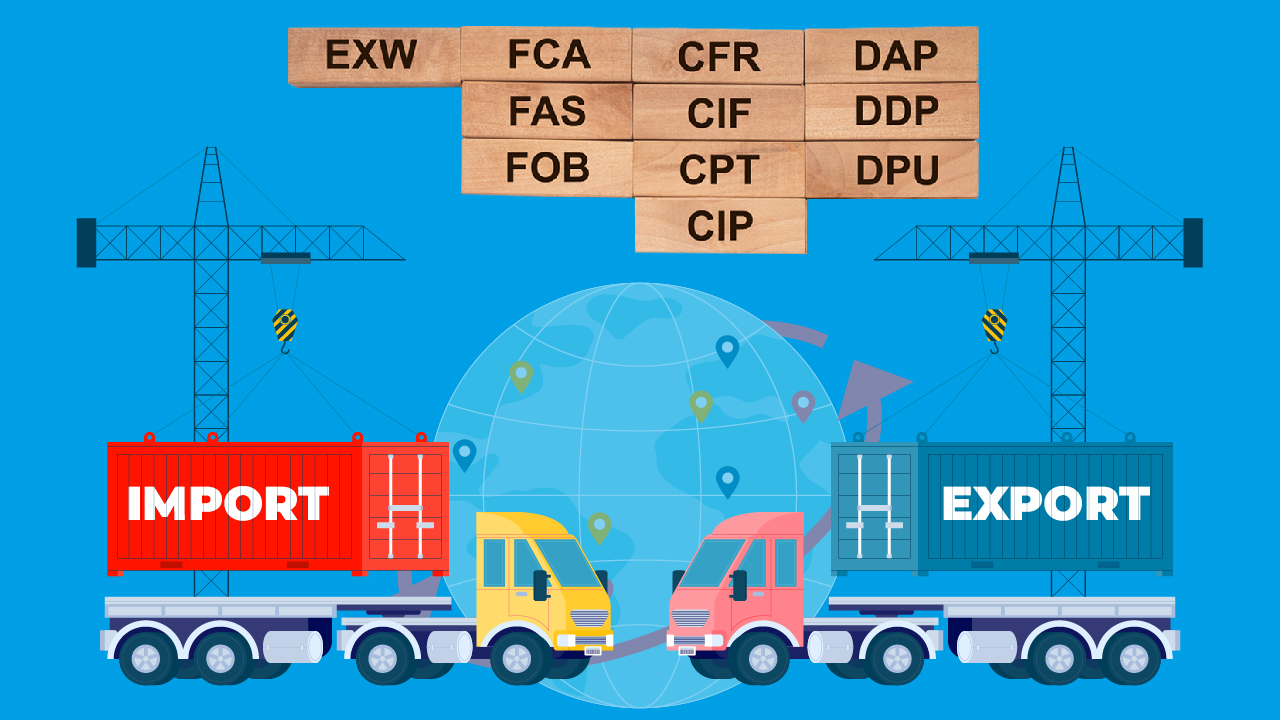What are INCOTERMS in Export Import?
Welcome to our guide on Incoterms in export-import, where we’ll make understanding international trade terms easy and straightforward. Whether you’re new to exporting and importing or looking to refresh your knowledge, this blog will equip you with the essentials to understand global transactions smoothly.
- Understanding Incoterms: Incoterms are like rules for international trade. They tell everyone involved – buyers, sellers, and carriers – who does what, when, and where. These rules help prevent misunderstandings and keep things running smoothly.
- Why Incoterms Matter: Knowing Incoterms is super important because they set the ground rules for shipping stuff around the world. By knowing who’s responsible for what, you can avoid problems and make sure your goods get where they need to go on time.
- Common Incoterms:
- EXW (Ex Works): The seller gets the goods ready, and the buyer takes care of everything else.
- FCA (Free Carrier): The seller delivers the goods, cleared for export, to the carrier nominated by the buyer at the named place.
- CPT (Carriage Paid To): The seller delivers the goods to the carrier or another person nominated by the seller at an agreed place.
- CIP (Carriage and Insurance Paid To): The seller delivers the goods to the carrier or another person nominated by the seller at an agreed place and pays for insurance.
- DAT (Delivered at Terminal): The seller delivers when the goods, once unloaded from the arriving means of transport, are placed at the disposal of the buyer at a named terminal at the named port or place of destination.
- DAP (Delivered at Place): The seller delivers the goods, ready for unloading, at the named place of destination.
- DDP (Delivered Duty Paid): The seller delivers the goods to the buyer, cleared for import, and pays all applicable taxes and duties.
- FAS (Free Alongside Ship): The seller delivers the goods alongside the vessel at the named port of shipment.
- FOB (Free on Board): The seller delivers the goods on board the vessel nominated by the buyer at the named port of shipment.
- CFR (Cost and Freight): The seller delivers the goods on board the vessel or procures the goods already so delivered.
- CIF (Cost, Insurance, and Freight): The seller delivers the goods on board the vessel or procures the goods already so delivered.
- Choosing the Right Incoterms: Picking the right Incoterms depends on what you’re shipping, how you’re shipping it, and how much risk you’re willing to take. Think about what works best for your business and negotiate with your trading partners.
- Making Sure Everything’s Legal: Following Incoterms means making sure you have all the right paperwork. That includes invoices, packing lists, shipping documents, and certificates. Getting this stuff right helps things go smoothly through customs.
- Using Tech to Make Things Easier: Technology can be your best friend in global trade. There are lots of tools out there to help you track shipments, manage your supply chain, and handle paperwork electronically. Using these tools can save you time and hassle.
Conclusion: Understanding Incoterms is key to successful global trade. By knowing the rules, choosing the right terms, and keeping everything legal, you can make your export-import business run like clockwork. So, embrace Incoterms, and open up new opportunities for your business on the world stage!


